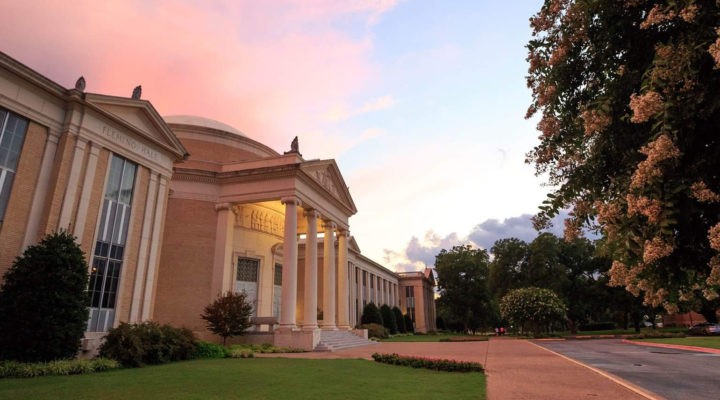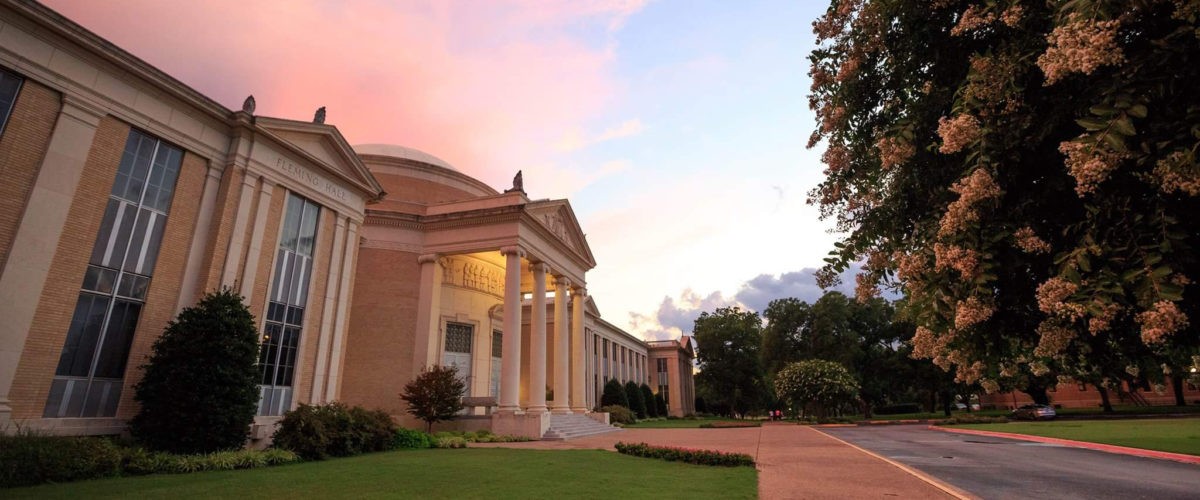The chairman of Southwestern Baptist Theological Seminary’s trustees made his first public statements about the resignation of former President Adam Greenway Oct. 18, citing “dysfunctionality amongst senior leadership” and financial mismanagement among issues of concern.
The board also was told by Interim President David Dockery that it is likely the Fort Worth, Texas, seminary will sell off some of its real estate, in addition to a 24-acre tract already on the market.
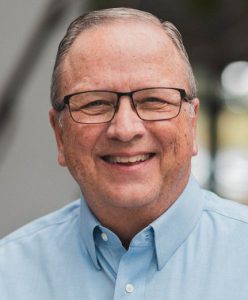
Danny Roberts
Danny Roberts, executive pastor at North Richland Hills Baptist Church in suburban Fort Worth, addressed the “difficult decisions” made by the board’s Executive Committee in September as he spoke to the full board today.
Despite the decision to part ways with Greenway, Roberts said he remains “convinced” God led the board to Greenway in 2019, noting he “accepted a very, very difficult assignment, which was further complicated by a global pandemic less than one year later.”
“Significant financial challenges compounded a growing sense of concern among our board leadership.”
“Over time, unfortunately, several patterns developed that board officers and the Executive Committee had a duty to address,” he said. “As those became known, they were addressed in an appropriate manner. Significant financial challenges compounded a growing sense of concern among our board leadership.”
Those “areas of concern” included “dysfunctionality amongst senior leadership, budget mismanagement, overspending resulting in hundreds of thousands of dollars of deficits per month and attempts to pass the blame for these matters onto three different chief financial officers who were each removed,” the board chairman said. “More recently, it became clear that action was required after evidence emerged of escalating morale problems in the institution, especially among the faculty, and a resistance to safeguards board leadership wanted to implement.”
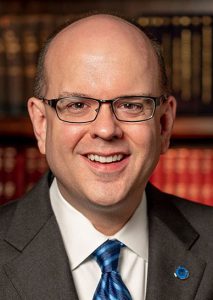
Adam Greenway
Greenway served just three years as president before resigning abruptly Sept. 22. Roberts’ public statements to trustees Oct. 18 clarified what had been intimated before: Greenway’s resignation was not entirely voluntary.
By the end of that Sept. 22 Executive Committee meeting, Greenway “offered his resignation and the trustees accepted that resignation,” Roberts said.
O.S. Hawkins, recently named senior advisor and ambassador-at-large working in concert with Dockery, drew a parallel between Southwestern’s present situation and the Hebrew prophet Nehemiah, who rebuilt the fallen walls of Jerusalem. He outlined a four-pronged strategy: “face up,” “team up,” “gird up” and “look up.”
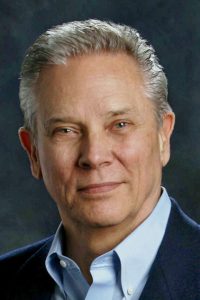
O.S. Hawkins
“Nehemiah reviewed the ruins and evaluated the situation regarding the broken walls and burned gates. Dr. Dockery and I have been doing a deep dive into how and why the seminary finds itself in its present condition, evaluating all matters — internal budget controls, expense spending, enrollment and other pertinent issues. We are facing the situation head on and making hard decisions,” Hawkins said.
Among those decision is a budget restructuring that reduces operational and personnel expenses by at least 10% or $3.6 million.
“Primary reductions will come in the area of institutional support, looking at programming reductions before looking at any personnel areas, although all areas of the institution will be affected,” Dockery told the board. “We all need to understand that this process will take time, several phases, but we remain hopeful regarding the long-term future of Southwestern.”
“Southwestern is not in a crisis, but our challenges could quickly escalate to a crisis if we do not aggressively move to address them.”
Dockery also spoke bluntly about the seminary’s financial situation: “Southwestern Seminary is facing serious financial challenges — challenges that have been building in recent months, but which also reflect multi-faceted matters covering a number of years. Unfortunately, there have been some confusing statements made about the state of the seminary. Southwestern is not in a crisis, but our challenges could quickly escalate to a crisis if we do not aggressively move to address them.”
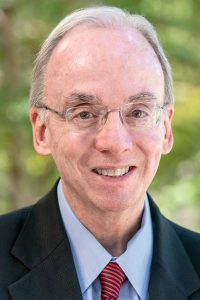
David Dockery
One way of shoring up the seminary’s finances will be selling of unneeded real estate, Dockery said. “Southwestern has a campus footprint that is now quite large in light of our current circumstances. Southwestern is blessed to sit on 200 acres. But this blessing also presents significant challenges. For this institution to have a sustainable business model, we must reduce our campus footprint and the resource commitment it takes to maintain it.”
The first step in this real estate downsizing already is in process, with the 24-acre tract known as Carroll Park student housing up for sale. Carroll Park is located about a mile away from campus and consists of 70-year-old duplexes and triplexes.
“While this housing complex has served our students well for many decades, it is no longer necessary or advantageous to operate and maintain housing disconnected from the seminary’s main campus,” Dockery said.
He added: “In the coming months, trustees and the administration will work collaboratively to identify other pieces of land surrounding the main campus that could be sold. This strategic approach, involving trustees and the administration, will allow us to invest more resources in that which is core to our mission, providing theological education to the next generation of pastors, missionaries and church leaders.”
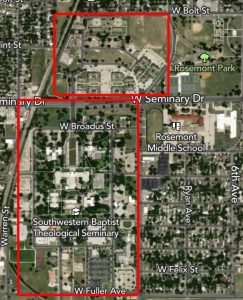
Aerial view with the main campus of Southwestern Seminary indicated in red. Carroll Park, now for sale, is not shown on this map but is located beyond the top left corner.
The Tarrant County Appraisal District lists 116 separate tracts owned by Southwestern Seminary, including the primary campus address as well as other properties ranging from dormitories to single-family houses.
Dockery told trustees: “We find ourselves at this moment seeking to discern and distinguish between those things that are imperative, those things that are important, and those things that are good. During this season, the seminary will work diligently to carry out those things which are imperative to advance the institutional mission, seeking to do so with excellence in a God-honoring way. The seminary will prioritize and evaluate those things which are important, seeking to make a wise decision regarding initiatives and programs that can and should be done at this time. We will, however, need to push the pause button on several matters in the months ahead.”
Chairman Roberts told trustees that plans to name a presidential search committee will be delayed indefinitely.
“Although we initially believed we would name a presidential search committee in this meeting, we have decided to delay that action until another day,” he said. “Dr. Dockery, Dr. Hawkins will have an opportunity to lead this institution to a more solid financial, spiritual, institutional direction and otherwise. In time, God will provide the right man at the right time as our future president.”
In the meantime, however, trustees will have access to “any and all information they requested, including expenses and other expenditures that led us into serious financial concerns.”
The reporting received so far has sparked additional questions, he added. “We are requesting the auditors to do some additional work to carefully examine all expenditures, especially those which raise concerns. We will govern Southwestern with the highest standards of financial accountability by implementing new processes and procedures to put new financial guardrails in place, and our new leadership is committed to manage spending aggressively.”
Among other notable actions by trustees, the board directed its Executive Committee to reevaluate the procedures of administration and board regarding hiring and firing senior officers — reflecting a particular concern of the Greenway administration.
Related articles:
Southwestern Seminary lists 24-acre parcel for sale
What happened at Southwestern and why does it matter? | Analysis by Mark Wingfield

